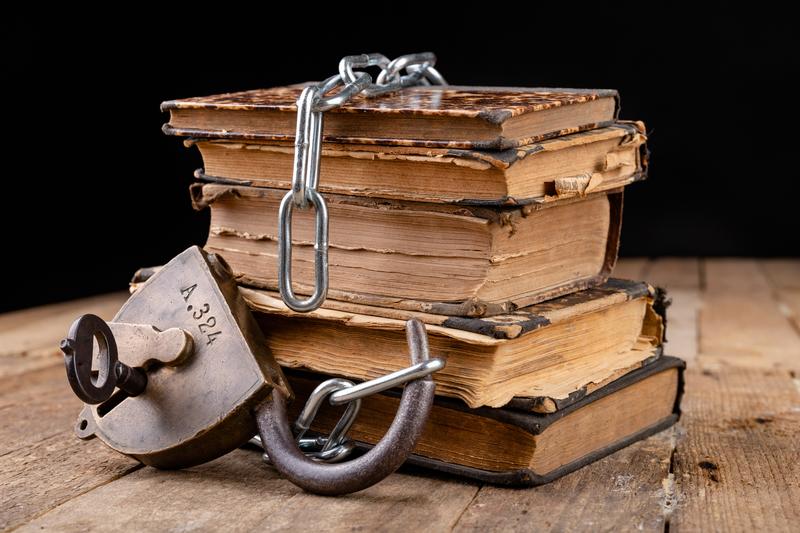<i>Disclaimer: I have not read Ulysses by James Joyce. My knowledge concerning that book comes from discussions with my previous literary instructors and fellow bibliophiles as well as from consultations of online synopses.
Many books—which are authored by writers seeking publication—have been banned by certain governments and institutions for certain time periods throughout human history. This of course begs the question: Why are books banned or censored?
As with everything else in life, there is an essentially infinite amount of possible causes—and about a million probable ones—but a few preponderant ones come to mind. 1984 has been banned for reasons ranging from its rightfully unapologetic assault on communism to its romantically explicit scenes.
Usually the reason for a book being banned aligns with the context in which it is being banned and with who is banning it. For example, 1984 has been banned by communist governments in the past and present for the former of the aforementioned reasons and banned by some school teachers, principals, or librarians for the latter reason.
What follows is a list of some noteworthy books that have been banned throughout history and their significance.
1984 (George Orwell)
Orwell wrote
1984 during the latter half of the 1940s—a decade marked by rising communist regimes and amounts of inappropriately-held western sympathy for communism following the end of World War II. Spiritually the book is a successor to
Animal Farm, which also attacked totalitarianism and communism and damaged the generous, inaccurate image of Stalin and the Soviets that became commonly held in the west during the Second World War.
As such, the book was immediately banned by the Soviet government upon publication, and in the past few years it has been banned by the Chinese government. The measures taken by totalitarian and communist governments to prevent their citizens from reading it implies the novel’s significance: It is very effective at demonstrating the horrors of tyrannical governments.
On the other side of censorship, the book has also been banned by some school boards due to some episodes of the novel being romantically explicit and conveying sexual relations.
While recognizing that the novel’s purpose is of the utmost importance for the world in which it was written and the world we currently inhabit—which is the same world, I would say—it seemed good to some educators to prevent these scenes which require an adult’s maturity and mindset from corrupting youth. Some details they do not need to know until they are older.
One of the most elusive, detailed, and thorough novels ever written, James Joyce’s
Ulysses is a grand tale, one that is infamous for the great difficulty it requires to completely read it. Shortly after publication,
Ulysses was banned in the United States and in a few other countries for its sexual content.
As I have not read the book, I cannot speak to how explicit such scenes may be, but I can speak of some other aspects of the book—although I hope I do not misrepresent it.
Ulysses is a grand novel. The book loosely mirrors the structure of Homer’s
The Odyssey. Joyce’s tale takes place in the span of a single day in the year 1904 and employs three main characters that mirror major characters from Homer’s epic. The novel employs humor and irony, the latter of which arises out of its comparisons to Homer’s tale: The disappointing reality of Joyce’s Dublin pales in comparison to the “epicness” of Homer’s Ithaca.
This is all I can really say lest I misrepresent the work, but I will conclude with this: I am convinced
Ulysses is well worth reading, and however many explicit scenes there are should not pose too much of an issue for the mature reader.
Siddhartha is the epitome of a bildungsroman, a coming-of-age novel. The book was at one point banned by a school district in Texas due to certain parts of its plot involving the birth of a child out-of-wedlock and encounters with prostitutes. It follows the life of a man named
Siddhartha living in ancient India—no, not Siddhartha Gautama Buddha, but the novel takes place during his lifetime, and Hesse’s main character meets him in the story.
As
Siddhartha grows up, he seeks the meaning of life and a purpose in the world. He attempts the monastic lifestyle, the urban lifestyle, the indulgent and worldly lifestyle. The object of his search is satisfaction, meaning, understanding, and peace. By reading the novel, the reader considers these goals and ideas as well.
Fitzgerald’s tale of the decadence, fakery, and human ambition in an industrializing America has from time to time been banned by certain school boards—although usually not permanently. The reasons are similar to those for which the above novels were banned: sexual scenes, vulgarity, and violence.
The novel tells the story of Jay Gatsby, a supposedly “great” man, in devoted pursuit of the love of his life. He often confides in the narrator Nick, who—newly arrived—reacts to the glamorous New York City and Long Island. The novel provides commentary on human ambition (How far are we willing to go in pursuit of our dreams?), the indulgent and decadent lifestyles of the elites, and the differences between urbanity and rural lands.
These books, once banned, are now readily available for purchase. If you feel so inclined, go read one!
